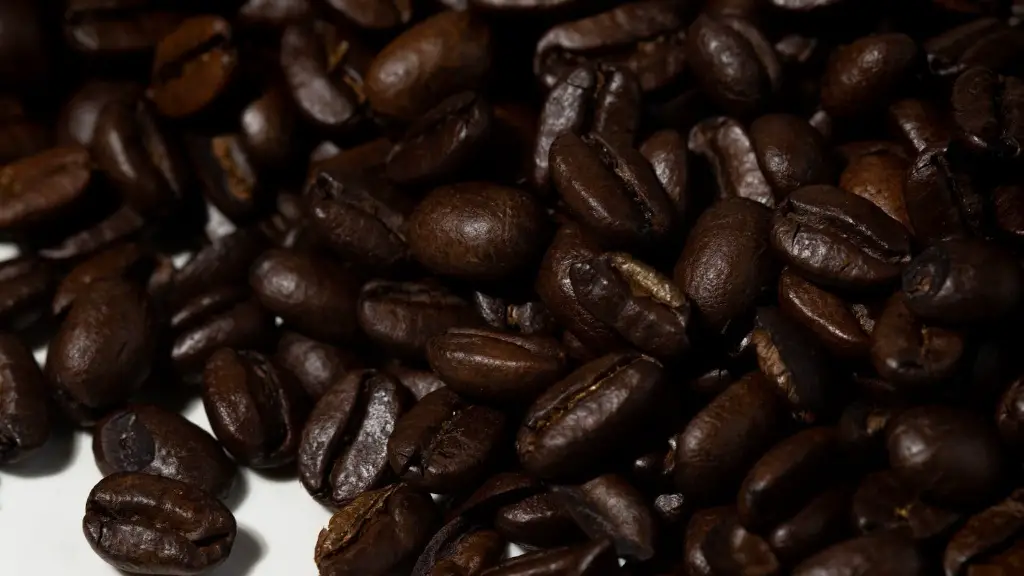Coffee and alcohol are two popular drinks that are enjoyed by many around the world. But do they go together? Should you drink coffee after drinking alcohol? This is a question that has been the subject of much debate, and the experts are divided.
On the one hand, many physicians advocate the drinking of coffee after a night of drinking. They say that it can help to counter the effects of alcohol in the system, and that it can help to reduce the symptoms of a hangover. On the other hand, other experts disagree, stating that the combination of coffee and alcohol can be dangerous, causing dehydration and other ill effects.
The truth is that there is not enough research to provide conclusive evidence either way. However, as with all things, moderation is key. If you are drinking alcohol, you should always ensure that you are drinking plenty of water throughout the evening, and that you are eating something substantial before drinking. Combining alcohol with coffee can be dangerous, as it can lead to dehydration, so it is best to avoid the combination if possible.
It is also important to consider the type of alcohol that you are drinking. Different types of drinks have different effects on the body, and some may be more dangerous when combined with coffee than others. It is also important to note that while some people may find that coffee helps combat the effects of alcohol, it is not a good idea to think of it as a ‘cure’. Alcohol affects the central nervous system and can cause serious health problems if consumed in large quantities.
Overall, the best way to ensure that you are enjoying your alcoholic drinks safely is to consume them in moderation, keep hydrated and eat something substantial before and after drinking. While coffee may be helpful in reducing the effects of alcohol, it is not an acceptable substitute for water. Finally, if you are experiencing any ill effects after drinking, it is always best to seek medical advice, as these effects can be serious.
Alcohol Consumption Patterns
When considering the consumption of coffee after drinking alcohol, it is important to be aware of the potential health risks associated with excessive alcohol consumption. Studies have shown that the incidence of hazardous and harmful alcohol use is increasing, particularly among young people, and it is important to be aware of this. Alcohol consumption patterns should always be monitored and any excessive drinking patterns should be addressed as soon as possible.
Furthermore, it is important to be aware that some individuals have a higher tolerance for alcohol than others, and this should be taken into account when drinking. If a person has a higher tolerance, they may not experience the same adverse effects from mixing coffee and alcohol as someone who has a lower tolerance. Therefore, it is important to be aware of the alcohol consumption patterns of each individual, and to ensure that any changes in their drinking behaviour are addressed.
Finally, it is important to remember that when consuming alcohol, all individuals should aim to consume within the recommended guidelines for responsible drinking. It is important to ensure that alcohol is not consumed to excess, as it can have serious and even fatal health implications.
Caffeine and Alcohol Metabolism
Another factor to consider when discussing the consumption of coffee after drinking alcohol is metabolism. Studies have shown that caffeine and alcohol are metabolised differently in the body, and this can lead to an increased risk of adverse effects when they are consumed in combination.
The metabolism of caffeine and alcohol can also be affected by the time of day and other factors such as age, gender and fitness level. Therefore, it is important to be aware of these factors when considering the consumption of coffee after drinking alcohol. Furthermore, it is important to be mindful of the potential risks associated with consuming too much caffeine, as this can lead to adverse effects such as headaches and dehydration, which can be exacerbated if alcohol is consumed in large quantities.
It is also important to remember that when drinking alcohol, the body is processing two different drugs, caffeine and alcohol, and this can lead to increased risks of side effects. Therefore, it is important to ensure that the combination of alcohol and caffeine is being monitored.
Alternatives to Coffee
When considering alternatives to coffee for combating the effects of alcohol, it is important to consider other safe and natural remedies. Some of the most common alternatives include consuming a banana, which is believed to have restorative effects on the body, or consuming a milk-based drink, which can provide a source of calcium and protein, both of which can be beneficial for helping to reduce the symptoms of a hangover.
There are also several supplements on the market that can aid in the body’s recovery after drinking alcohol, although they should not be seen as a substitute for proper hydration. Finally, it is important to be aware that some herbal remedies have also been found to be effective in helping to reduce the effects of alcohol.
Factors to Consider When Drinking Alcohol and Coffee
When drinking coffee after drinking alcohol, it is important to consider a number of factors. Firstly, it is important to ensure that the combination is consumed in moderation, and that the individual’s alcohol consumption patterns and behaviour is monitored.
Furthermore, it is important to be aware of the potential health risks associated with excessive alcohol consumption and the impact of caffeine and alcohol metabolism on the body. Finally, it is important to consider alternative remedies for combating the effects of alcohol, such as natural products or supplements.
Precautions for Combining Alcohol and Coffee
It is also important to be aware that there are certain precautions to consider when combining alcohol and coffee. Firstly, it is important to ensure that the combination is consumed in moderation, as excessive drinking can lead to serious health risks. It is also important to be mindful of the effects of caffeine and alcohol metabolism, as these can be detrimental if consumed in large quantities.
Furthermore, it is important to ensure that alcohol is not the only source of liquid in the body and that other sources of fluid, such as water, are consumed. Finally, it is important to be aware of the alternative remedies available for combating the effects of alcohol, as these may provide a safer and more effective alternative to coffee.
Effects of Alcohol on Mental Health
Finally, it is important to consider the effects of alcohol on mental health. There is evidence to suggest that excessive drinking can lead to an increased risk of developing depression and anxiety. It is also important to note that alcohol can impair cognition and judgement, which may lead to an increased risk of accidents and injury, as well as irresponsible behaviour.
Therefore, when considering the consumption of coffee after drinking alcohol, it is important to consider the effects of alcohol on mental health. Furthermore, it is important to ensure that alcohol is consumed in moderation, and that appropriate safety measures are taken when drinking, such as wearing a designated driver or using public transport.
In conclusion, the consumption of coffee after drinking alcohol should be considered carefully, and experts advise that the combination should be avoided where possible. However, where coffee is consumed, it is important to ensure that it is done so in moderation, as excessive consumption can lead to adverse effects. Furthermore, it is important to be mindful of the potential benefits of alternative remedies and to always ensure that alcohol consumption is monitored.





